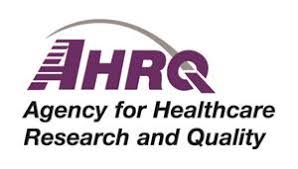Report: Telehealth Laws and Reimbursement
Relevant Articles about Pain and A Comprehensive Scan of the 50 States and District of Columbia – Findings & Highlights
Telehealth has become increasingly important in the past year and there are numerous pieces to understand when thinking about access to pain care. The Center for Connect Health Policy’s most recent fifty-state survey of state telehealth laws and Medicaid program policies was completed in Fall 2020. The full PDF report is available, as is an interactive map of existing and pending telehealth-related policies by state.
For more information, see Practical Pain Management’s How COVID has Changed Pain Practice and Policies, which touches on some of these issues and references prior AACIPM spotlights on Dr. Kohli (see more about him below) and Dr. Vaglienti (from West Virginia University) If you are a provider of mental health care to people living with pain, Psycom Pro has published relevant guidance for you in their recent article, Mental Health Practice: Teletherapy Fraught with Legal and Ethical Challenges.
ICYMI – In Case You Missed It
AMA’s story Texas FQHC Develops Integrative Model for People with Pain
 People with acute and chronic pain, especially those who are underserved, face significant challenges accessing person-centered, multidisciplinary, comprehensive integrative pain management. Earlier this month, we sent a bulletin focused on multi-stakeholder efforts – innovation, progress, and opportunities – to improve access to integrative pain care for people who are underserved.
People with acute and chronic pain, especially those who are underserved, face significant challenges accessing person-centered, multidisciplinary, comprehensive integrative pain management. Earlier this month, we sent a bulletin focused on multi-stakeholder efforts – innovation, progress, and opportunities – to improve access to integrative pain care for people who are underserved.
“We know from best practices that patients’ pain care must be individualized, so we created our own program that – based on their preferences – allows them to choose from a larger toolkit,” Dr. Kohli said.
Relevant Announcements from HHS
 NCCIH Strategic Plan: RFI
NCCIH Strategic Plan: RFI
Throughout their year-long strategic planning process, NCCIH is seeking input from its stakeholders. For this phase in the process, NCCIH is requesting comments on their 5-year plan for FY2021-2025. The comment period ends March 12. It is important that stakeholders interested in comprehensive integrative pain management have their voices heard.
During a related request from NCCIH for public comment last year, AACIPM submitted this letter, approved by AACIPM’s Advisory Committee.
AHRQ Grants for Innovative Digital Solutions
 We are sharing this relevant Funding Opportunity Announcement (FOA) because AACIPM’s work with Purchasers of Healthcare includes creation of resources for self-funded groups to use innovative digital solutions for comprehensive integrative pain management. This FOA invites applications for research projects that test promising digital healthcare interventions aimed at improving the quality of healthcare services delivery at the point of care. The overarching objective of this FOA is to improve the quality of healthcare services delivery at the point of care.
We are sharing this relevant Funding Opportunity Announcement (FOA) because AACIPM’s work with Purchasers of Healthcare includes creation of resources for self-funded groups to use innovative digital solutions for comprehensive integrative pain management. This FOA invites applications for research projects that test promising digital healthcare interventions aimed at improving the quality of healthcare services delivery at the point of care. The overarching objective of this FOA is to improve the quality of healthcare services delivery at the point of care.
AACIPM Partner Resources | Conferences
Important resources from multi-stakeholder partners (purchasers, people with pain, providers, researchers) relevant to our shared goals.
![]() For Patients: US Pain Foundation Hosts Webinar – March 4 at 8pm ET
For Patients: US Pain Foundation Hosts Webinar – March 4 at 8pm ET
As vaccine rollout continues, many patients have questions: Is the vaccine right for me? What are the risks? What are the benefits? How does it all work?
To help answer these questions and assist the pain community in making informed choices about their health, the US Pain Foundation is presenting “Understanding the COVID-19 vaccine,” a webinar featuring three experts from Pacific Northwest University (PNWU) of Health Sciences, on Thursday, March 4, at 8 pm ET. Register Now
Recruiting for Clinical Trial
 Researchers at the University of Washington with the Back on Track to Healthy Living and Living in Full Even with Pain Studies are recruiting adults over 18 to participate in a clinical trial that examines three different evidence-based chronic pain treatments: (1) Mindfulness Meditation; (2) Cognitive Therapy; and (3) Activation Skills. Participants will receive free treatment for their chronic pain.
Researchers at the University of Washington with the Back on Track to Healthy Living and Living in Full Even with Pain Studies are recruiting adults over 18 to participate in a clinical trial that examines three different evidence-based chronic pain treatments: (1) Mindfulness Meditation; (2) Cognitive Therapy; and (3) Activation Skills. Participants will receive free treatment for their chronic pain.
For more information, please visit https://sites.uw.edu/botstudy/. Interested individuals may also contact study staff by calling 206-221-7224 or toll-free 1-800-570-5576, or by email at botstudy@uw.edu. All interested participants will need to complete a phone screening to determine eligibility for this study.
Group facilitators may contact Study Coordinator Joy Chan at joychan@uw.edu for more information about the study or if they have questions about the appropriateness of the study for their support group.
Kentuckiana Health Collaborative (KHC) 2021 Annual Conference
 Optimizing Health 2021 – Equity, Value, and Well-being – March 9,10
Optimizing Health 2021 – Equity, Value, and Well-being – March 9,10
AACIPM values our relationships with collaborators and partners, and Kentuckiana Health Collaborative is one of them. Their annual conference has a phenomenal line up of speakers to address equity and value in optimizing health. See 2020 program with KHC and AACIPM, promoting a national effort towards comprehensive integrative pain management.
Call for Papers: Complementary and Alternative Therapies for Pain Management
The September 2021 special issue of Evidence-Based Complementary and Alternative Medicine Journal is now open for submissions. Deadline: April 16
 Replay: Virtual Summit on Balanced Pain Management
Replay: Virtual Summit on Balanced Pain Management
The Alliance for Balanced Pain Management convened convened patients, health care providers, advocates, regulators and legal experts to explore pain policy and patient-centered pain care. Presenters included Shari Ling from CMS, Suchitra Iyer from AHRQ and more. Watch the replay.
Message from the Director

This newsletter includes information developed by and with the multi-stakeholder representation in our Alliance. I am increasingly encouraged by our work, as we connect the dots among the nation’s leading influencers and innovators related to comprehensive integrative pain management.
To that end, AACIPM’s Benefit Design Workgroup had a very constructive meeting this month as we are synthesizing and finalizing plans for new resources coming later this year that will support self-funded groups interested in comprehensive strategies for pain management.
I hope you take a moment to peruse what’s included – as it represents a synthesis of multi-stakeholder perspectives when it comes to how we can connect more dots to advance access to CIPM.
Onward and Upward!
Amy
Relevant Reading
![]() How some older Minnesotans are learning to live well with chronic pain, StarTribune, February 24
How some older Minnesotans are learning to live well with chronic pain, StarTribune, February 24
Chronic Illness, COVID and the Vaccine – Impossible Choices, MilwaukeeMag, February 19
Health care challenge: Helping patients suffering chronic pain, Capitol Weekly, February 19
Pandemic stress and working from home are increasing chronic pain, Anchorage chiropractors say, Anchorage Daily News, February 15
New Society Launched to Advance Pain Research, Pain News Network, February 11
Lyra Health and Willis Towers Watson Enter into an Agreement to Offer Employers Comprehensive Mental Health Care Solutions, PR Newswire, February 10
Mindfulness programs grow in public schools to address ‘storm of stresses’, Pittsburgh Post Gazette, February 8
‘My personal lockdown has been much longer’: on chronic illness, before and after Covid, The Guardian, February 6
Fibromyalgia, chronic fatigue syndrome, and Long COVID: How patients push medical communities to recognise and treat their diseases, RT Documentary Channel, February 5
Study Sees Beneficial Role of Yoga in Weight-Loss Program for Adults With Obesity or Overweight, NIH, February 2
The Forever Disease: How Covid-19 Became a Chronic Condition, New Republic, February 2
How COVID Has Changed Pain Practice and Policies, Practical Pain Management, January 5
Feedback
We welcome your input! What do you like? Do you have a contribution for an upcoming newsletter? Send us your comments, suggestions, or contributions.
